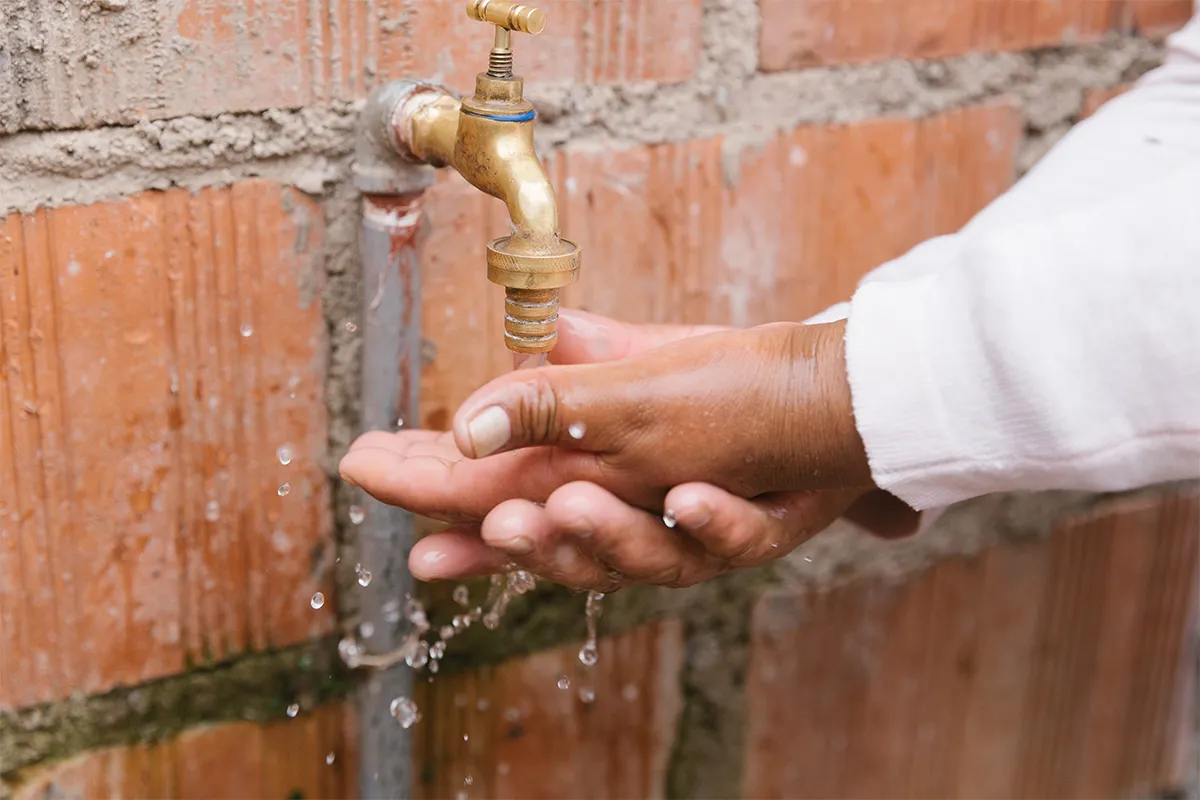A catalyst for sustainable change: Using financing to put the power of water into the hands of people in need
By Pablo Anton Diaz, Financial Institution Partnerships, Latin America
Published April 23, 2024
A lingering problem
The cost of survival can be high, especially when you live trapped in a cycle of poverty. Right now, millions of people pay high prices for water. Some spend as much as 20% of their income on purchasing water from vendors. Those who are not spending money to buy water are spending time to collect it – time that could be spent earning income. They have no choice but to spend hours of their days in search of water to collect from unsafe natural sources.
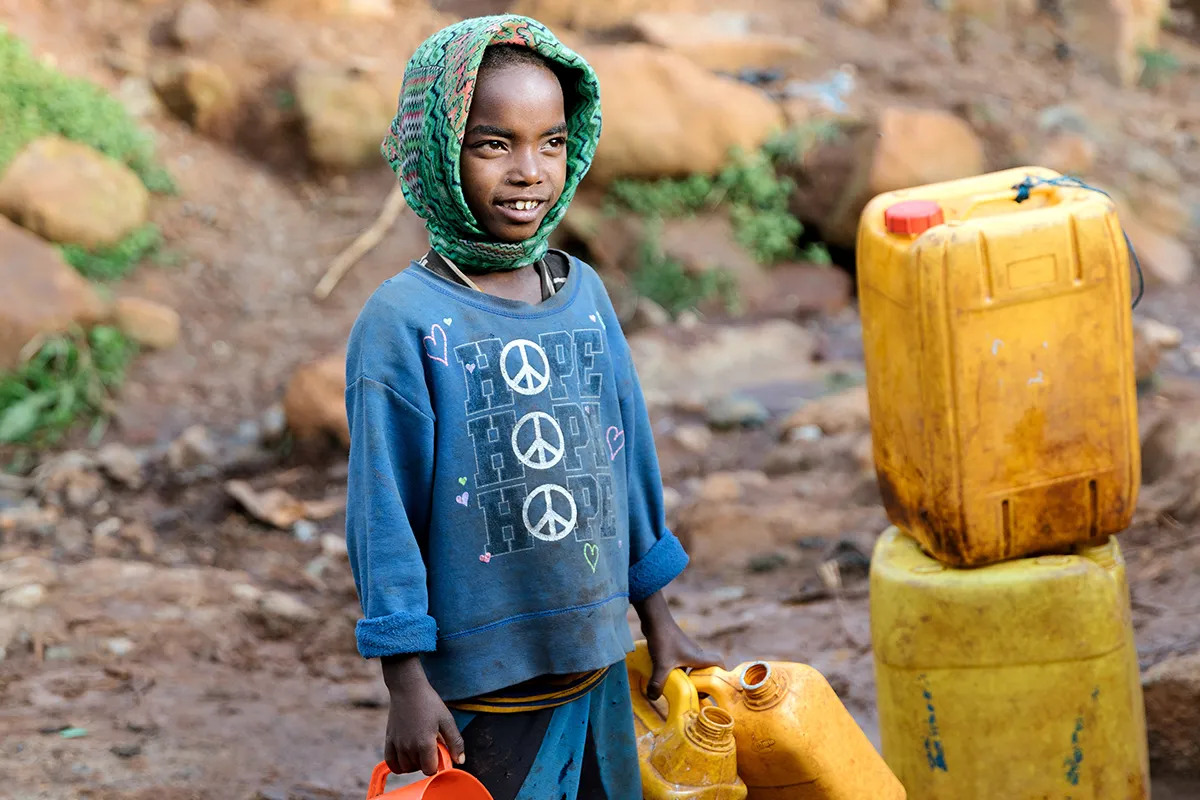
Women and girls spend 200 million hours every day collecting water.
A solution that creates lasting solutions
Tackling the water crisis is not just about distributing water tanks and purifiers or building wells. These solutions have been shown time and again to be unsustainable. Solving the global water crisis must be about empowering people to be agents of their own change and progress. At Water.org, we do this by treating the people we serve as clients and customers who can define their own solutions and futures. This is possible through inclusive finance.
For many of the people we serve, financing is familiar, it is motivating, and it is an affordable way of getting what is needed now while paying it off in increments over time. This is why we created WaterCredit. With small loans, millions of people in need of safe water or sanitation at home can get lasting solutions that end up costing less than continuing to pay for temporary solutions.
WaterCredit bridges the financial gap between people living in poverty and the water and sanitation solutions they need to survive and thrive. It acts as a beacon of financial inclusion, enabling people living on less than $6.85 a day to take control of their water access needs.
WaterCredit is a powerful solution and the first to put inclusive finance tools to work in the water and sanitation sector.
Leveraging local knowledge and financial expertise to empower agents of change
The affordability and sustainability that reinforce WaterCredit’s success are possible because we do the leg work of bringing together local financial institutions, utilities, and businesses to provide the funding and materials needed to create lasting safe water and sanitation solutions for families in need. We connect people to existing resources that will help them solve their water crises. We remove the barrier to accessing affordable financing, allowing local financial institutions to serve an overlooked market segment in their communities.
The households who borrow to give their families long-term safe water or sanitation solutions at home are empowered to more effectively participate in and support their local economies. This prospers the local market, drives social impact, and supports the local financial institutions we partner with. People living in the water crisis are reliable, paying customers. They are undeterred by loan interest because the cost of living without improved water and sanitation is often much higher.
Water.org’s financial approach to solving the global water crisis helps break the cycle of dependency on external aid in many of the regions where we work and fosters a sense of ownership and responsibility within communities. It puts the power of water directly into the hands of the people who need it. This is why 98% of loans through WaterCredit are paid back and why to date, we have been able to reach more than 66 million people with affordable, lasting access to safe water or sanitation.
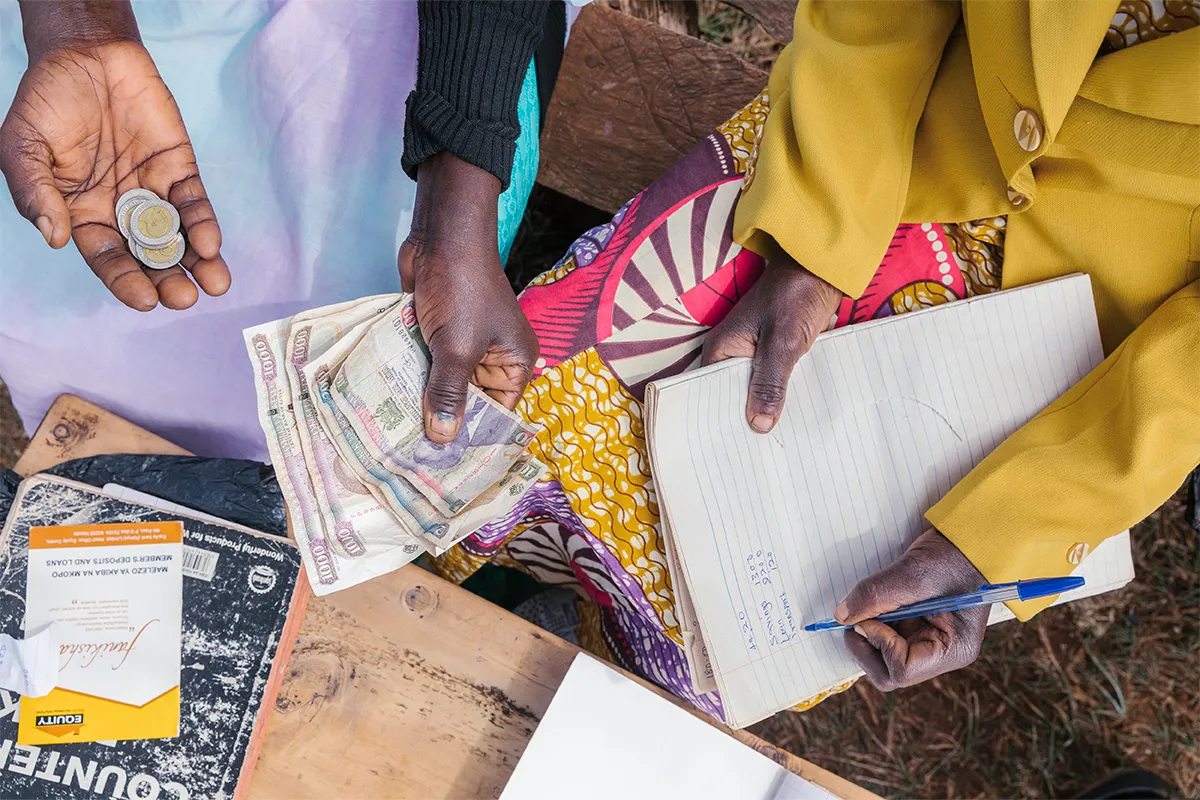
WaterCredit at work
In Mexico, I met a woman named Patty. She took out a small loan to finance a rainwater harvesting system for her house. Patty decided to invest in the system to eliminate her trips to the center square of her town, located about 20 minutes from her house. There she spent four to five hours each week standing in line at the government offices to request and pay for a water truck to drive to her house to fill her water tank. These daytime hours spent securing water for her family were hours Patty could not work, and this was costly.
As a native to Mexico, I have witnessed countless stories similar to Patty’s as it is common for families to rely on water jug and water truck deliveries. In trying to secure water for her home, Patty spent more than 2,000 pesos per month, about a quarter of her income. She celebrates her savings of time and money now as the rainwater harvesting system she financed provides her family with a reliable, alternative source of water in their home.
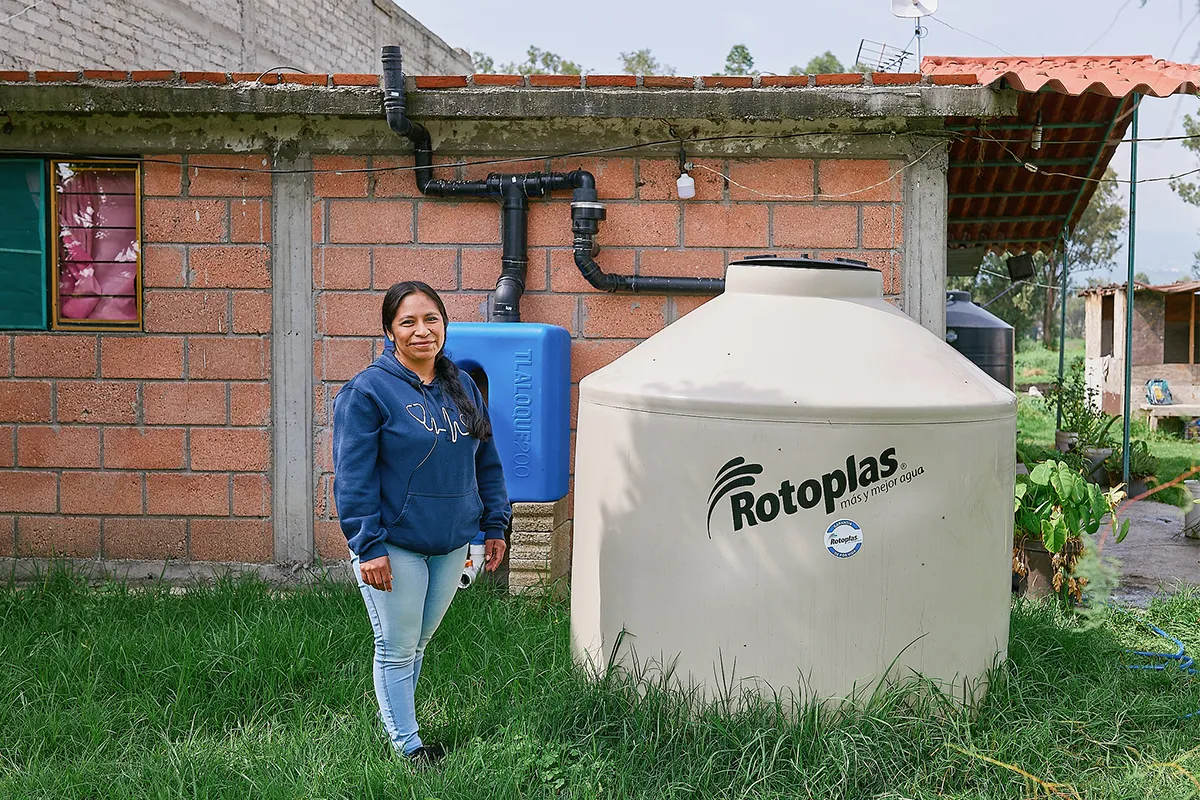
Patty was able to affordably finance a rain storage solution that allows her family to capture rainwater at their home in Mexico to filter and use for their household water needs.
Long-term investments win over failed freebies
Some solutions to the global water crisis fail to yield sustainable impact because the charity concepts do not address root, systemic issues. Keoun's story is an example of when charitable aid failed to deliver on it's promise to help solve their family's water crisis.
Keoun has a lasting safe water solution on her property now. As a result of Water.org’s work in Cambodia, Keoun was able to finance a safe water connection to her home, so she now has piped water and a water tap. She finds this to be an ideal solution to her family’s water crisis. Prior to getting this connection, Keoun’s family had no source of water on their property. They were presented with the opportunity to receive a well from a charity and accepted it. Well-intentioned, the gifted well was to serve Keoun’s family and surrounding neighbors.
The well measured about a meter in diameter and was positioned just in front of Keoun’s front door where her grandchildren and neighboring children often play. Within less than a year, the well broke and Keoun had no means or support to repair it. The well continues to be inoperable and, though covered with a piece of scrap wood and a stack of bricks, is something Keoun considers to be an unnecessary and dangerous fixture on her property.
We believe that financing is a strong, successful alternative to an outright handout. When you put the power of choice and financing into the hands of the people in need, the solution is more likely to succeed because they have a personal investment to see it through. By providing people like Keoun with financial resources to solve their own water crises, Water.org ensures that the solutions implemented are not only affordable but also lasting. Part of that sustainability stems from choice and the other part, ownership. Families can choose the water and sanitation solutions that are best and affordable for them, and they tap into local resources to install those solutions on their properties.
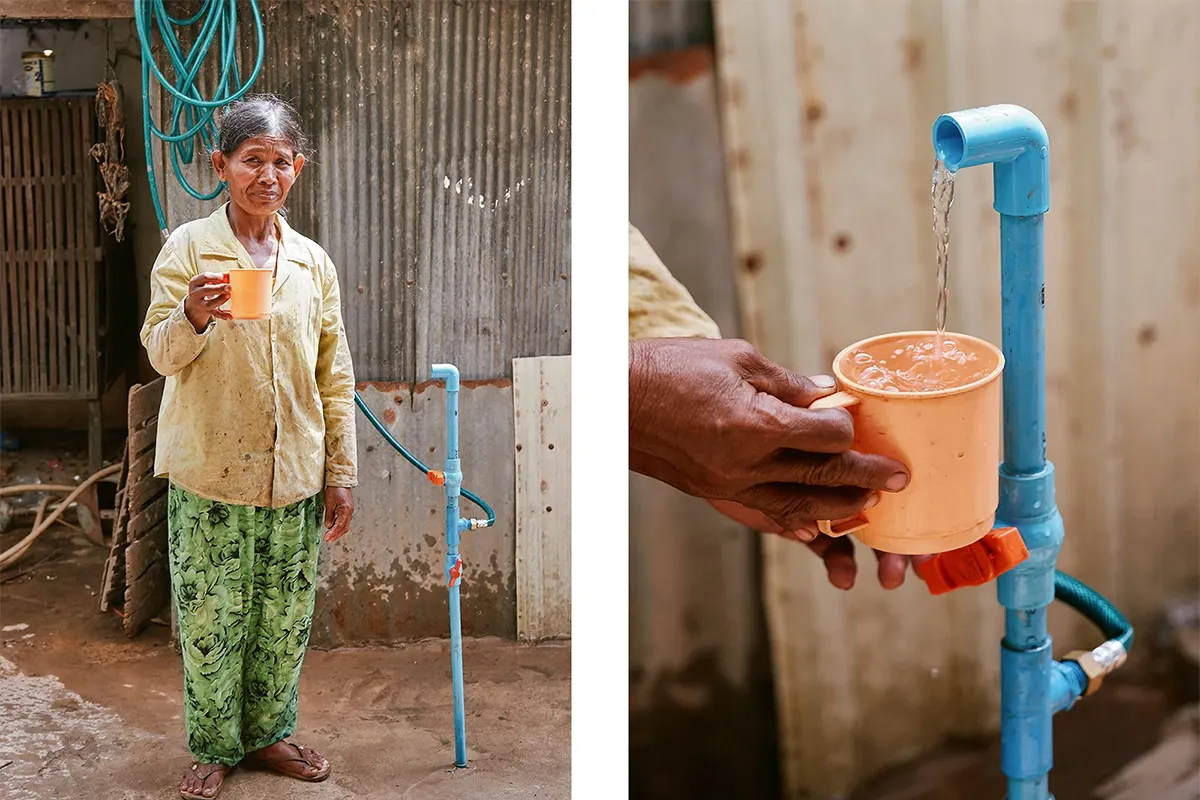
Our powerful solutions are market-driven and adapt to the 11 countries in Asia, Africa and Latin America where we work. Here, Koeun, takes a break from farming on her land in Cambodia to take a drink of water.
Here's to putting the power of water where it belongs
By empowering people living in poverty with affordable access to long-term safe water and sanitation solutions, we help them build a sense of ownership as active stakeholders in the process. By providing an opportunity instead of aid, we recognize the agency that families in need already possess. With sustainable access to safe water at home, these families experience improved health, more time to earn income, and educational and work opportunities that become ingrained in the fabric of their lives. And these benefits help ensure lasting impact.
We believe water is the way to break the cycle of poverty, to protect and save lives, and to make bright futures possible. Donate today and together we can make it safe, accessible, cost-effective, and sustainable for people in need.
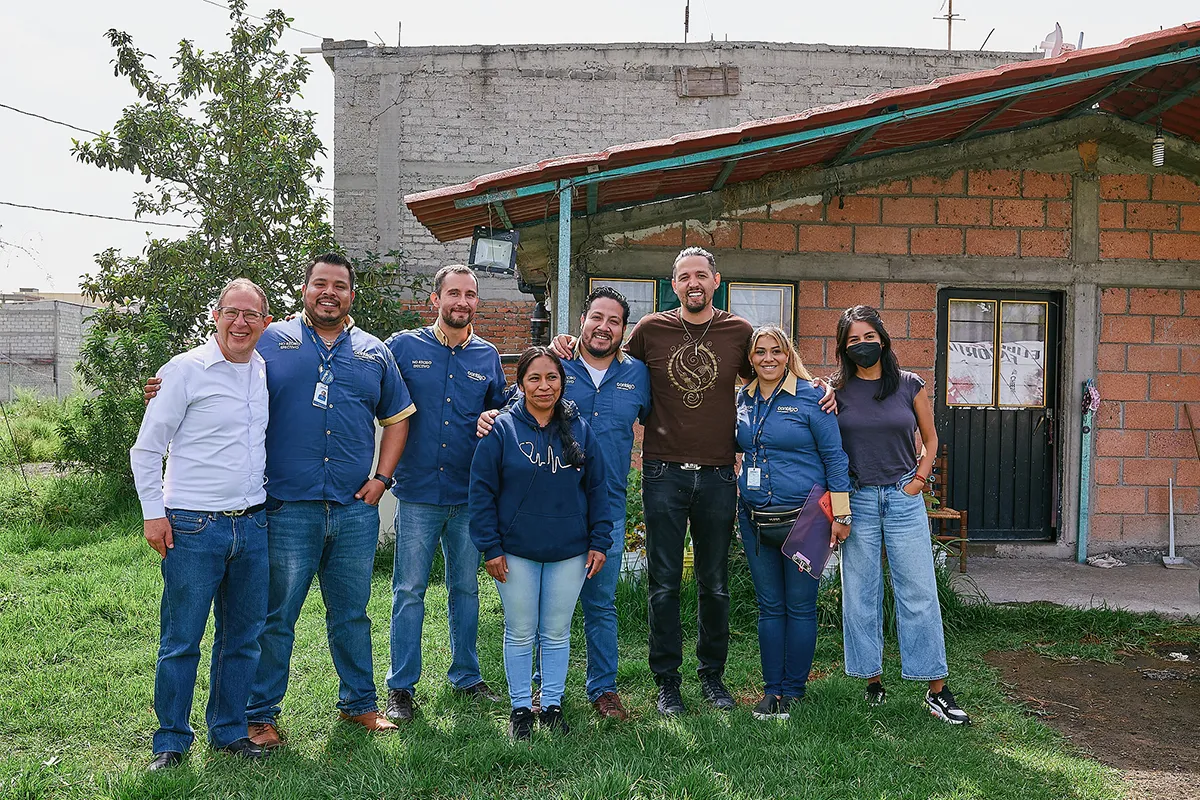
Together with our 143 partners around the world, we’ve helped mobilize more than $5.5 billion in capital to support small loans that bring access to safe water and sanitation to millions of people in need.
